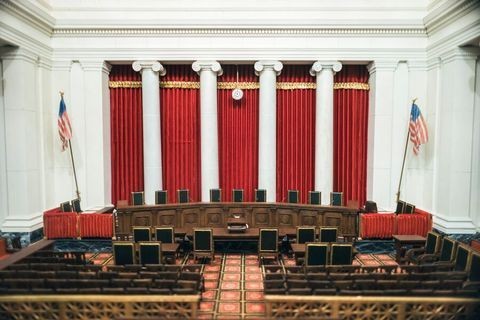Amanda H. McDowell
Overview
Amanda focuses on litigating on behalf of government contractors. She advises clients facing high-stakes investigations and allegations initiated by the federal government or relators under the False Claims Act. Amanda also assists clients in affirmatively asserting claims against the government and helps strategize with clients defending against government-asserted claims concerning issues that arise in the course of contract performance. Her experience in federal procurement regulations enable her to guide clients through an array of procurement litigation disputes.
Career & Education
- The George Washington University Law School, J.D., with honors, 2021
Public Contract Law Journal: editor-in-chief - University of Delaware, B.A., psychology and criminal justice, 2017
- The George Washington University Law School, J.D., with honors, 2021
- Virginia
- District of Columbia
- U.S. District Court for the Eastern District of Virginia
Professional Activities and Memberships
- Vice-Chair, ABA Section of Public Contract Law, Young Lawyers Committee August 2023 - August 2024
- ABA Section of Public Contract Law
- American Health Law Association
Honors and Awards
- Full Section Diversity Scholarship 2022-2024, ABA Section of Public Contract Law
Amanda's Insights
Blog Post | 12.15.25
Eleventh Circuit Hears Argument on False Claims Act Qui Tam Constitutionality
Client Alert | 5 min read | 12.12.25
Eleventh Circuit Hears Argument on False Claims Act Qui Tam Constitutionality
Speaking Engagement | 10.23.25
"Procurement Fraud and Enforcement," Government Contracts 101 Seminar, Washington, D.C.
Speaking Engagement | 09.17.25
Representative Matters
- Representing government contractors in the defense and health care industries in FCA litigation and investigations initiated by whistleblowers and the government.
- Conducting internal investigations for private companies facing noncompliance and fraud allegations.
- Counseling government contractors on performance disputes and compliance issues, including potential terminations, overpayments, and cost accounting practices.
- Representing government contractors before the Armed Services Board of Contract Appeals in litigation defending compliance with cost accounting practices.
- Representing businesses engaged in federal procurement before the Boards of Contract Appeals in affirmatively asserting claims against the government.
Amanda's Insights
Blog Post | 12.15.25
Eleventh Circuit Hears Argument on False Claims Act Qui Tam Constitutionality
Client Alert | 5 min read | 12.12.25
Eleventh Circuit Hears Argument on False Claims Act Qui Tam Constitutionality
Speaking Engagement | 10.23.25
"Procurement Fraud and Enforcement," Government Contracts 101 Seminar, Washington, D.C.
Speaking Engagement | 09.17.25
Insights
The False Claims Act: Compliance issues in US government procurement and healthcare
|08.07.24
Global Investigations Review
When Does Money Talk? ASBCA Says Claims With Financial Impact Not Automatically Monetary Claims
|06.20.23
Westlaw Today
- |
04.07.21
American Bar Association 50 Pub. Cont. L.J. 251
“What the Construction Industry Needs to Know About the Connecticut And Federal False Claims Acts”
|07.17.23
Client Training Presentation - "Compliance with Truthful Cost or Pricing Data Act"
|07.06.23
Eleventh Circuit Hears Argument on False Claims Act Qui Tam Constitutionality
|12.15.25
Crowell & Moring’s Government Contracts Legal Forum
Feature Comment: The Top FCA Developments Of 2016 For Government Contractors
|01.11.17
The Government Contractor
Amanda's Insights
Blog Post | 12.15.25
Eleventh Circuit Hears Argument on False Claims Act Qui Tam Constitutionality
Client Alert | 5 min read | 12.12.25
Eleventh Circuit Hears Argument on False Claims Act Qui Tam Constitutionality
Speaking Engagement | 10.23.25
"Procurement Fraud and Enforcement," Government Contracts 101 Seminar, Washington, D.C.
Speaking Engagement | 09.17.25





